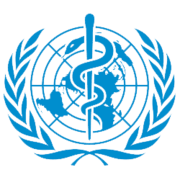What are Non-Communicable Diseases (NCDs)?
NCDs are long-term diseases caused by lifestyle, genetics, and environment, not infections. They kill 43M yearly and cause 83% of deaths in Sri Lanka. Main types: heart disease, diabetes, cancer, asthma. Prevention: healthy diet, exercise, regular check-ups, avoid tobacco and alcohol.

Non-communicable diseases (NCDs) are medical conditions that are not passed from person to person. Instead, they develop because of a combination of genetic, physiological, environmental, and lifestyle factors. Unlike infections, NCDs are usually long-lasting and chronic in nature.
Globally, NCDs are the leading cause of death, responsible for over 43 million deaths in 2021. In Sri Lanka, they account for 83% of all annual deaths.
NCDs disproportionately affect the poor and socially disadvantaged. People from lower socio-economic backgrounds are more likely to get sick and die earlier, often due to limited access to healthcare, poor awareness, and exposure to risk factors. In fact, 73% of all NCD deaths occur in low- and middle-income countries.
Main Types of NCDs
- Cardiovascular diseases – including heart attacks, strokes, and peripheral vascular disease
- Diabetes
- Cancers
- Chronic respiratory diseases – COPD, asthma
- Hypertension (high blood pressure)
- Hypercholesterolemia (high cholesterol)
- Obesity
NCDs often develop slowly and may show no early symptoms, which is why regular screening is so important.
What Risk Factors Contribute to NCDs?
- Family history (genetics)
- Unhealthy diet – high in sugar, salt, saturated/trans fats
- Lack of physical activity or sedentary lifestyle
- Stress
- Tobacco use
- Harmful alcohol use
- Air pollution
When these factors build up over time, they lead to metabolic conditions (such as high blood pressure, high cholesterol, or high blood sugar), which in turn increase the risk of NCDs.
Can NCDs Be Prevented?
Yes!
Even if you feel healthy, regular screening for NCDs is essential.
Detecting risk factors early means NCDs can be delayed or prevented.
If there is NCD and they are diagnosed at an early stage, proper treatment can reduce complications and improve quality of life and longevity.
What Should Be Done?
The best way to control NCDs is to reduce exposure to risk factors and take proactive steps:
- Eat a healthy diet – rich in fruits, vegetables, whole grains, lean proteins, and healthy fats.
- Exercise regularly – at least 150 minutes of moderate activity per week.
- Avoid smoking and harmful alcohol use.
- Manage stress through relaxation techniques, sleep, and balance.
- Adhere to medications if you have existing conditions.
- Go for routine check-ups and screenings according to your age and risk profile.
Monitoring progress and trends is vital.
Your recommended schedule for routine screening depends on your age and your risk level for developing these major NCDs.
Early detection = timely treatment = better control over your health.
Speak to your healthcare provider to learn more about your personal risk factors and schedule your next screening.
Dr. Dula Senadeera
References


